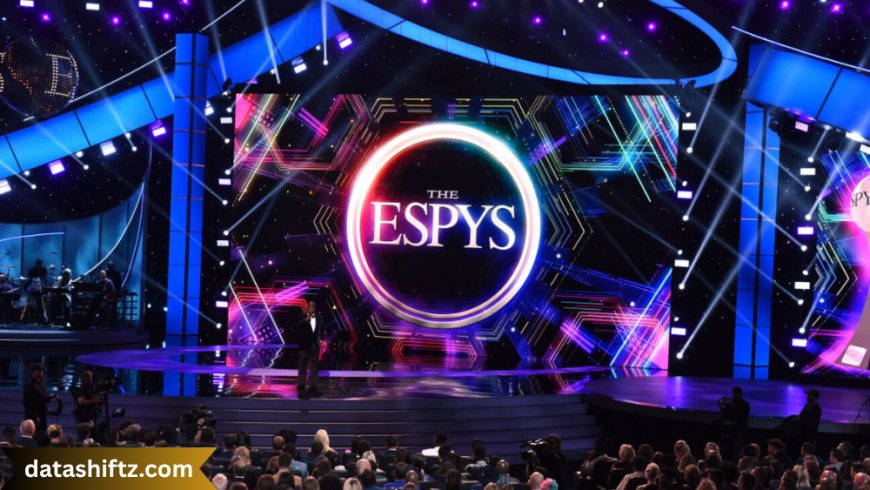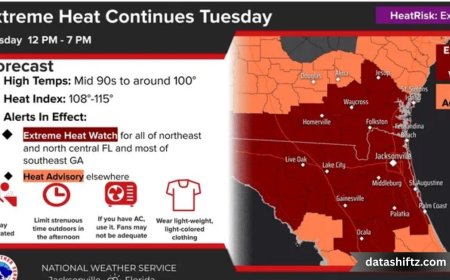The ESPY Awards: Celebrating Excellence in Sports Performance

Introduction
The ESPY Awards—short for Excellence in Sports Performance Yearly—have grown into one of the most iconic celebrations in the world of sports. Since their inception in 1993, the ESPYs have served as a prestigious platform where athletes are not only recognized for their exceptional performance but are also honored for their courage, determination, humanitarian contributions, and unforgettable moments.
Unlike league-specific awards (like the NFL MVP or NBA Defensive Player of the Year), the ESPYs unite the entire athletic universe under one roof. From football and basketball to golf, tennis, track, and even eSports, the ESPYs transcend borders and sports genres to celebrate the best of the best. It is an awards show with Hollywood glam, but its heart remains deeply rooted in the perseverance and human spirit that define sports.
In this article, we delve into the history, structure, cultural significance, and memorable moments of the ESPY Awards, complete with lists and tables to organize the highlights of its rich legacy.
Origins and Evolution of the ESPYs
The ESPY Awards were created by the American sports television network ESPN to celebrate athletic achievement and influence. The first ceremony took place on March 4, 1993, at Madison Square Garden in New York City, hosted by comedian Dennis Miller.
Purpose Behind the ESPYs
Unlike traditional sports award shows determined solely by statistical performance or panel decisions, the ESPYs were unique in allowing fan participation in voting. This added an element of democratic engagement and gave fans a voice in honoring their heroes.
Over the years, the ESPYs have grown not only in stature but also in their ability to reflect the social, emotional, and cultural impact of sports. The event became a space where significant stories—like overcoming adversity, mental health awareness, activism, and inclusivity—could be highlighted and celebrated.
Award Categories and Selection Process
The ESPYs feature a wide range of award categories, covering both individual and team accomplishments. Some awards are fan-voted while others are chosen by the ESPY Select Nominating Committee, which consists of sportswriters, broadcasters, executives, and past winners.
Major ESPY Award Categories
| Category | Description |
|---|---|
| Best Male Athlete | Top overall male performer across all sports |
| Best Female Athlete | Top overall female performer across all sports |
| Best Team | Most outstanding team performance |
| Best Breakthrough Athlete | Rising star making a major impact |
| Best Moment | Iconic or emotional sports moment of the year |
| Best Comeback Athlete | Athlete who returned to top form after injury or adversity |
| Best Play | Most jaw-dropping play or highlight of the year |
| Best Game | A game remembered for its drama, stakes, and excitement |
| Arthur Ashe Courage Award | Honors individuals who exhibit courage in the face of hardship |
| Jimmy V Award for Perseverance | Celebrates extraordinary strength and tenacity |
The Cultural Impact of the ESPYs
Blending Sports and Entertainment
The ESPY Awards have become a cultural event that merges sports and entertainment. Celebrities from Hollywood often attend or present awards, adding a red-carpet appeal. Athletes use the platform to speak on issues close to their hearts—from equality and inclusion to health and social justice.
Social Commentary and Tributes
One of the most moving parts of the ESPYs are the tributes and human-interest stories. The awards often include heartfelt video segments and speeches that go beyond statistics, highlighting the human journey behind the athlete.
Notable examples include:
-
Stuart Scott’s 2014 speech while accepting the Jimmy V Award for his cancer battle.
-
Caitlyn Jenner’s acceptance of the Arthur Ashe Courage Award in 2015, raising transgender awareness.
-
Pat Tillman and posthumous honors for athletes who made ultimate sacrifices.
Top 10 Most Memorable ESPY Moments
-
Stuart Scott’s Jimmy V Speech (2014) – “You beat cancer by how you live.”
-
Caitlyn Jenner Receives Arthur Ashe Courage Award (2015) – An emotional plea for transgender rights.
-
Jim Valvano’s Original Speech (1993) – “Don’t give up. Don’t ever give up.”
-
LeBron James, Dwyane Wade, Chris Paul, and Carmelo Anthony Open with a Statement on Racial Injustice (2016).
-
Devon Still Accepts Award on Behalf of Daughter Leah (2015).
-
Serena Williams' Speech as Best Female Athlete (Multiple Years) – Empowerment and excellence.
-
The U.S. Women’s National Soccer Team Wins Best Team (2019) – Celebrating equal pay advocacy.
-
Lauren Hill Honored for Courage in the Face of Cancer (2015).
-
Kobe Bryant Tribute Following His Passing (2020).
-
Simone Biles Wins Best Female Athlete (2017, 2021) – Emphasis on mental health and strength.
Notable Hosts Over the Years
The ESPYs are known not just for their awards but for their entertaining hosts, many of whom come from the world of comedy or sports themselves.
Iconic ESPY Hosts
| Year | Host(s) | Notable Elements |
|---|---|---|
| 1993 | Dennis Miller | First ever ESPYs host |
| 1997 | Jeff Foxworthy | Southern humor and sports connection |
| 2005 | Matthew Perry | Witty commentary and "Friends" fame |
| 2011 | Seth Meyers | Known for sharp sports satire |
| 2013 | Jon Hamm | Suave delivery with athlete admiration |
| 2015 | Joel McHale | Biting humor and NFL jabs |
| 2016 | John Cena | Wrestler turned polished public speaker |
| 2019 | Tracy Morgan | Touching on personal recovery and comedy |
| 2021 | Anthony Mackie | Marvel meets sports fandom |
| 2023 | Pat McAfee | Former NFL punter turned energetic host |
The Arthur Ashe and Jimmy V Legacy
Arthur Ashe Courage Award
Named after the tennis legend and humanitarian Arthur Ashe, this award is presented to individuals whose contributions transcend sports. Past recipients include Nelson Mandela, Muhammad Ali, Robin Roberts, and Billie Jean King.
Jimmy V Award for Perseverance
Named in honor of Jim Valvano, the former NC State basketball coach who died of cancer shortly after giving a legendary ESPYs speech in 1993. The award is a symbol of courage in the face of insurmountable odds.
ESPY Awards vs. Other Major Sports Awards
| Criteria | ESPYs | League MVP Awards |
|---|---|---|
| Scope | All sports | Specific to league (NFL, NBA, etc.) |
| Voting | Fans and panel | Panel of experts or journalists |
| Humanitarian Focus | Strong (Ashe & Jimmy V Awards) | Limited |
| Ceremony Style | Red carpet, celebrity-filled | Traditional press conferences |
| Narrative Impact | High storytelling and emotion | Primarily performance-based |
| Host Presence | Yes (Comedians, Celebs, Athletes) | No host, less theatrical |
ESPYs and Modern Issues in Sports
As social issues become more intertwined with sports, the ESPYs provide a powerful platform for athletes to advocate for change. Topics commonly addressed include:
-
Racial inequality (e.g., Black Lives Matter statements)
-
Gender equity in pay and opportunity
-
Mental health awareness
-
LGBTQ+ representation
-
Veterans and disabled athletes
The awards help frame athletes not just as competitors but as change agents.
Conclusion
The ESPY Awards are more than just another awards ceremony—they are a cultural institution that bridges the gap between sports, society, and storytelling. Each year, they remind fans and athletes alike that while stats and records are important, it’s the human stories behind the numbers that truly move us.
From honoring jaw-dropping performances to recognizing those who fight silent battles off the field, the ESPYs celebrate the full spectrum of what it means to be an athlete. As sports continue to evolve, the ESPYs remain a beacon, shining light not just on the games we watch, but on the lives we live inspired by them.
Tags:
Related Posts
LeBron James: The Legacy of a Basketball Icon
DataSHFTZ Oct 7, 2025 0 2
Feeling Extremely Happy NYT: Understanding Joy in Moder...
DataSHFTZ Jun 21, 2025 0 8




























